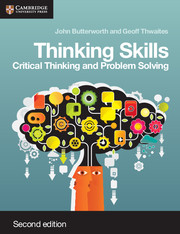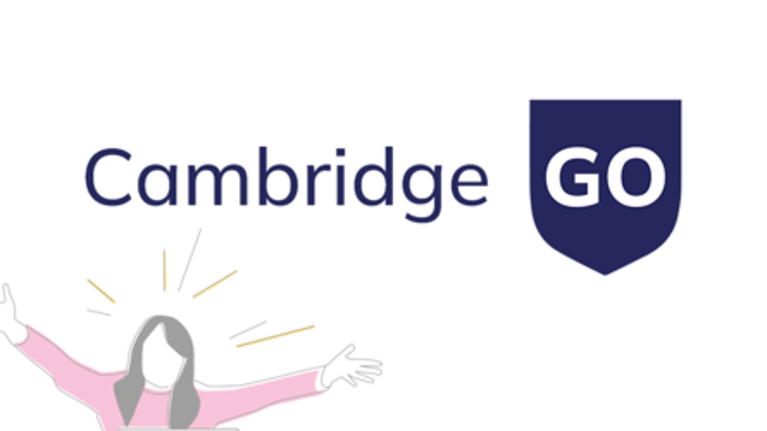Thinking Skills
Overview
Thinking Skills, Second edition, is the only endorsed coursebook that provides complete coverage of the Cambridge AS and A Level Thinking Skills syllabus offering substantially updated, new and revised content. It also contains extensive extra material to cover related awards.
Written by experienced and highly respected authors, this book includes features such as clearly focused and differentiated units, stimulating student activities with commentaries to develop analytical skills, summaries of key concepts to review learning, end-of-chapter assignments to reinforce knowledge and skills, and a mapping grid to demonstrate the applicability of each unit to awards including Critical Thinking, BMAT and TSA.
Features
- Clearly focused and differentiated units.
- Stimulating student activities with commentaries to develop analytical skills.
- Summaries of key concepts to review learning.
- End-of-chapter assignments to reinforce knowledge and skills.
- A mapping grid to demonstrate the applicability of each unit to awards including Critical Thinking, BMAT and TSA.
Contents
- Unit 1. Thinking and Reasoning:
- 1. Thinking as a skill
- 2. An introduction to critical thinking
- 3. Solutions not problems
- Unit 2. Critical Thinking: the Basics:
- 1. Claims, assertions, statements
- 2. Judging claims
- 3. Argument
- 4. Identifying arguments
- 5. Analysing arguments
- 6. Complex arguments
- 7. Conclusions
- 8. Reasons
- 9. Assumptions
- 10. Flaws and fallacies
- Unit 3. Problem-solving: Basic Skills:
- 1. What do we mean by a 'problem'?
- 2. How do we solve problems?
- 3. Selecting and using information
- 4. Processing data
- 5. Finding methods of solution
- 6. Solving problems by searching
- 7. Recognising patterns
- 8. Hypotheses, reasons, explanations and inference
- 9. Spatial reasoning
- 10. Necessity and sufficiency
- 11. Choosing and using models
- 12. Making choices and decisions
- Unit 4. Applied Critical Thinking:
- 1. Inference
- 2. Explanation
- 3. Evidence
- 4. Credibility
- 5. Two case studies
- 6. Critical thinking and science
- 7. Introducing longer arguments
- 8. Applying analysis skills
- 9. Critical evaluation
- 10. Responding with further argument
- 11. A live text
- Unit 5. Advanced Problem-solving:
- 1. Combining skills - using imagination
- 2. Developing models
- 3. Carrying out investigations
- 4. Data analysis and inference
- Unit 6. Problem-solving: Further Techniques:
- 1. Using other mathematical methods
- 2. Graphical methods of solution
- 3. Probability, tree diagrams and decision trees
- 4. Have you solved it?
- Unit 7. Critical Reasoning: Advanced Level:
- 1. Conditions and conditionals
- 2. Soundness and validity: a taste of logic
- 3. Non-deductive reasoning
- 4. Reasoning with statistics
- 5. Decision-making
- 6. Principles
- 7. An argument under the microscope
- 8. Critical writing
- End-of-chapter assignments: answers and comments
- Appendix
- Index
- Acknowledgements.
Brighter Thinking Blog
Keep up to date with the latest classroom tips and educational trends from our brighter thinkers.
Visit the blogCatalogues and Ordering
Looking for something in particular or just browsing? View our catalogues to see our full range of print and digital books.
View and downloadAdvice on useful tools
Advice on useful tools, activities and timetabling from teachers experiencing school closures.
Cambridge GO
All our supporting resources have now moved to Cambridge GO – the new home for your Cambridge digital content.
Listen to our podcast
Listen to our podcast to discover teaching inspiration & advice from leading educational thinkers.




